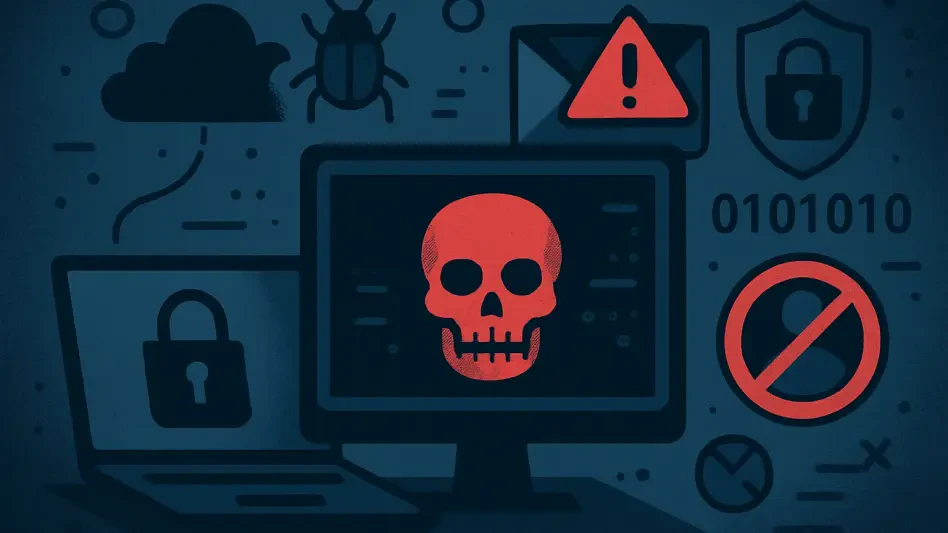Namibia is increasingly becoming a target for cyber-attacks, as recent incidents have starkly revealed significant vulnerabilities in the country’s digital infrastructure. This growing threat has raised alarms among local businesses, further emphasized by Facilit8 Namibia, a prominent digital firm in the region. The company has underlined the urgent need for enhanced cybersecurity measures to safeguard Namibia’s digital landscape from mounting cyber threats.
Growing Dependency and Systemic Risks
Nrupesh Soni, the owner and technology specialist at Facilit8 Namibia, points out that Namibia’s dependency on international networks and service providers significantly amplifies its susceptibility to global cyber threats. Soni highlights the interconnected nature of telecommunications and internet services, which means that if one organization gets breached, it could potentially lead to cascading effects on other entities within the network. This interconnectedness exacerbates systemic risks and underscores the need for robust cybersecurity protocols to protect the entire digital ecosystem.
Moreover, Soni emphasizes the critical absence of a centralized incident response system in Namibia. He advocates for the establishment of a national Computer Emergency Response Team (CERT), which would provide a coordinated and swift response mechanism during cyber incidents. Without this centralized system, Namibia’s capability to mitigate and respond to cyber threats effectively remains limited. Instituting a national CERT could significantly enhance the country’s resilience against cyber-attacks, allowing for improved threat intelligence sharing, incident coordination, and collaboration with international cybersecurity agencies.
High-Profile Cyber Attacks
The severity of Namibia’s cybersecurity challenges has been brought to the forefront by recent high-profile attacks on infrastructure companies such as Paratus Namibia and Telecom Namibia. Cybercriminals are increasingly targeting these entities to maximize their impact, rendering Namibia’s expanding digital ecosystem an attractive and high-value target. These incidents underscore the urgency for Namibian businesses to escalate their cybersecurity defenses.
One particularly alarming incident was the cyber-attack on Paratus Namibia by the Akira Ransomware group, which involved the exfiltration of over 84 gigabytes of corporate data. This attack highlights the critical need for continuous monitoring, rigorous employee training, and the implementation of zero-trust security architectures among Namibian businesses to fortify their defenses against such sophisticated threats. The incident at Paratus Namibia serves as a stark reminder of the pressing cybersecurity threats facing the nation and the necessity for stringent security measures.
Detailed Breach Analysis
Managing Director of Paratus Namibia, Andrew Hall, has confirmed that a wide array of sensitive data was exfiltrated during the attack, including non-disclosure agreements, driver’s licenses, passports, and financial data. The breach, which occurred on February 13, 2025, prompted Paratus Namibia to collaborate closely with top-tier international cybersecurity experts to comprehensively assess the situation and secure stakeholder interests. Hall provides assurance that customer backups stored in cloud-hosted solutions remain encrypted by default, effectively mitigating the risk of unauthorized access.
Following the breach, Paratus Namibia has urged stakeholders to stay vigilant, exercise caution with suspicious emails or messages, avoid clicking on unknown or unexpected links, and be wary of communications that appear unusual or claim to be from Paratus. Reporting any suspicious activities to the incident response team is strongly encouraged to ensure proactive measures are in place to prevent further breaches. This situation stresses the importance of ongoing vigilance and robust incident response strategies to manage and mitigate the risks posed by cyber threats.
Immediate Response and Mitigation
In swift response to the security breach, Paratus Namibia implemented immediate measures to isolate the affected environment, remove VPN access, and secure all impacted systems. These actions were aligned with their established incident response protocols, aimed at minimizing further disruption to services and operations. The company’s adherence to these protocols highlights the importance of having pre-established, well-defined response strategies to address cyber incidents effectively.
To bolster their recovery efforts, Paratus Namibia enlisted the expertise of top-tier international security specialists, who arrived on-site the day after the incident to restore the infrastructure and data using proven international methodologies. The company’s commitment to leveraging global expertise underscores the severity of the threat and their dedication to ensuring comprehensive remediation. Investigations into the breach remain ongoing, with Paratus focused on safeguarding stakeholder interests and fortifying their systems against future attacks. This incident serves as a critical learning point for other Namibian businesses about the importance of robust, immediate response measures and the value of international collaboration in handling cyber threats.
Legislative and Educational Initiatives
The recent cybersecurity incidents, including a significant breach at Telecom Namibia in December, emphasize the urgent need for robust cybersecurity legislation in Namibia. The attack on Telecom Namibia, perpetrated by a group identified as Hunters International, compromised over 400,000 public records. These events highlight the need for strong legal frameworks to combat the growing menace of cybercrimes effectively. The Data Protection Bill and Cybercrime Bill are nearing their implementation stages, poised to play a crucial role in strengthening Namibia’s cybersecurity infrastructure.
Experts consistently advocate for the establishment of a national CERT to enhance coordination in responding to cyber incidents. Additionally, the importance of investing in local cybersecurity talent and education cannot be overstated. By partnering with educational institutions and international organizations, Namibia can develop specialized training programs that reduce reliance on international experts. Such initiatives will build a skilled local workforce capable of addressing the country’s cybersecurity challenges head-on and ensuring more sustainable and resilient cybersecurity practices.
Technological Investments and Future Preparedness
Namibia has become an increasingly attractive target for cyber-attacks, with recent incidents exposing significant vulnerabilities within the nation’s digital infrastructure. These cyber threats have sparked major concerns among local businesses, highlighting the critical nature of the issue. Facilit8 Namibia, a leading digital firm in the country, has been vocal about the urgency to upgrade and enhance cybersecurity measures. The company stresses that without bolstering these defenses, Namibia’s digital landscape remains highly susceptible to continued and potentially devastating cyber threats. The rising frequency and sophistication of these attacks underscore the pressing need for comprehensive strategies to protect sensitive information, ensure the integrity of digital operations, and maintain the trust of consumers and stakeholders. As technology continues to evolve, the importance of safeguarding digital environments cannot be overstated, making cybersecurity a top priority for Namibia’s future stability and growth.







